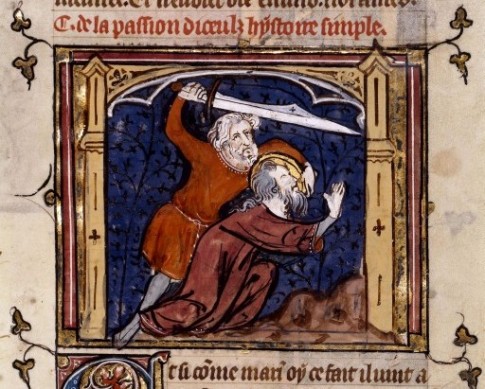I promised myself to get through Valentine’s Day whole. I’d call another single friend, and we’d take each other out. I couldn’t think who. But I’d be fine. I’d hold my breath, and my head down, and not feel lonely. My social media feed was kind. The ex and I patched something up, surprisingly, just before, so instead of haunting me, we were having remarkable exchanges about our friendship.
Then this thing happened. I chatted with a more recent heartthrob. A man who teaches young Black boys.
His carelessness with my past attachment had disappointed me deeply. We’ve seen each other since twice; both times I’d winced. Realising we were planning to attend the same event, I shared that the tabanca lingers, and it would be difficult.

And I couldn’t help wondering what he says to little boys he is teaching, for many of whom he is the closest grown man in their life, when they feel pain. “Give it a laugh; it’s just in your head?”
Because it’s men toting like me, but who have been taught to not be acknowledged when they are hurt, who burn down their houses with their children inside, or show up where the women who’ve left them work, and kill them spectacularly. Men my friend genuinely thinks he’s teaching as boys the tools to cope with pain. Men who will hear in their lover’s dismissive laugh at their outrageous masculinity the derision of their teacher or their mother that time they cried.
And I heard myself say to him:

It wasn’t a joke like his. In his voice boiling in the blood in my ears was every man who’d ever told me carelessly that the pain he was causing me was my imagination.
So, if I’ve been in therapy over and over, over 45 years, and still don’t know how to be hurt or made fun of, what expectations can we have for men our society has offered no useful lessons at all in self-reflection, emotional intelligence, or coping?
Other than the surprise visit one relative paid her husband and his woman with me in tow, I’ve never been inside a domestic violence situation. I’ve generally chosen good men. Artsy ones. Bright ones. Okay, two addicts. But working men. One with a PhD. Ones who’ve shown knee-buckling charm. Ones who’ve offered incredible tenderness.
And with no recent exception ones incapable of emotional accountability. I did think for a minute it was bad choices. But at one point I discovered: These are the men out there. These are the men we have raised.
Men we’ve deprived of the lessons in emotional discipline and muscularity we teach girls from small. How to care for themselves. How to care for others. How to care about others. How to attach. How to negotiate. How to manage homework and housework and pleasure. How to acknowledge and work through pain. Lessons in balance and mindfulness. In self-denial.
Boys we’ve just let loose to go where their good feelings lead, encouraged to cover up bad feelings or risk shame, and forgiven for carelessness. And when they unreflectingly go where their groins carry them, we smile at their manhood.
In 2001, I left a five-year relationship that was my biggest success ever at love. I had hurt my lover deeply, could not bear the thought of doing it again, and refused to reconcile. I still feel responsible. In the past several affairs I’ve ended, however, each of my partners has bluntly declined to confront or account for any misdeeds. They’re sorry. But that’s that, let’s move along now.
It’s driven me to fury. Fury that makes me realise how much I am also one of those men we’ve raised. I find myself straddled across masculinity: a victim of its carelessness; a resident of its fury.
My feelings were unreasonable, improbable, poor choices, my friend kept saying. As with his boys, he said, he points out when feelings are unfounded or illegitimate.
I couldn’t convince him to step back from making fun of them. Or to share his own. I couldn’t create space where we could live in the discomfort of feelings, or where they were not something uncomfortable at all. And that’s the thing itself. Men don’t get spaces to be safely intimate with others that aren’t sexual or sexually vulnerable.
Gay men do have this uncanny way we provide permission for our straight brothers to be vulnerably honest in ways they’d feel ashamed or umanly to with heterosexual men and women, which still surprises me each time it happens. But the closeness is unbearable, I want to fall in love, and inevitably say something stupid that hurts, or step away so not to.
 Once again, I don’t have answers. But they’re somewhere in how we can raise boys differently. “With dolls,” my friend whose son is just off to university, said bluntly.
Once again, I don’t have answers. But they’re somewhere in how we can raise boys differently. “With dolls,” my friend whose son is just off to university, said bluntly.
That first-century saint with the February 14th feast-day was tortured and beheaded. But maybe we can give little boys better tools for getting through it whole.